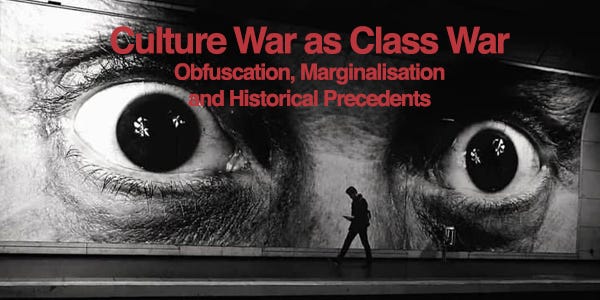Morning Comrades.
We don’t have to imagine a society that gives people endless distractions but denies them any meaning. We’re living it. We are flooded with entertainment, we’re drowned in advertisments and we are fed from day one a steady diet of vapid pop culture that obfuscates any real meaning and particularly, reality. This machinery, that cosplays as our culture tells us what to want, how to love and who to be. There is no room for introspection, there is no room for nuance and there is no room for the profound. We are told from birth that happiness is something that we can buy and that, thus, our main purpose is prosperity and that contentment is a collection of possession.
We are allowed to explore every surface but never the depths and this machinery has reduced our lives to a series of momentary pleasures, temporary fixes and yet, beneath this surface there is a gaping emptiness, beneath the distractions thrown at us, the empty smiles, the violent manufactured culture wars, an unresolved turmoil exists.
The so-called "culture war" is often framed as a struggle over values, identity, and social norms, seemingly distinct from material concerns. However, culture is neither autonomous nor neutral; it is shaped by and reinforces class relations.
The assertion that "the ‘culture war’ is part of the class war, but in the sense that everything being argued about in the culture war can only be resolved as part of class war" is crucial to understanding how issues of race, gender, and identity are both subordinated to and shaped by capitalist social relations.
The key mechanism through which the culture war serves the ruling class is obfuscation: it redirects political struggle away from structural critiques of capitalism and towards intra-class conflicts, rendering class exploitation less visible. Yet this does not mean that marginalization—such as racism, patriarchy, and other forms of oppression—is secondary or irrelevant; rather, these forms of oppression are deeply embedded in capitalism itself and can only be meaningfully addressed through a revolutionary class struggle. Historical examples, from the Civil Rights Movement to the labour struggles of the 20th century, illustrate how identity-based oppression has been leveraged to divide the working class and how genuine emancipation has required class-based solidarity.
Let’s get into it.
Keep reading with a 7-day free trial
Subscribe to Black Lodges to keep reading this post and get 7 days of free access to the full post archives.




